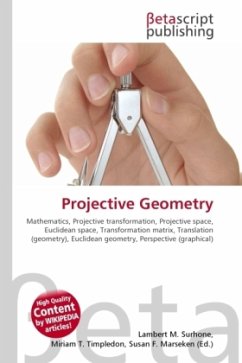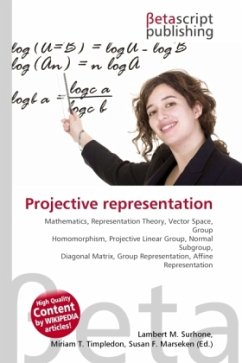High Quality Content by WIKIPEDIA articles! In mathematics, projective geometry is the study of geometric properties which are invariant under projective transformations. This means that, compared to elementary geometry, projective geometry has a different setting, projective space, and a selective set of basic geometric concepts. The basic intuitions are that projective space has more points than Euclidean space, in a given dimension, and that geometric transformations are permitted that move the extra points (called "points at infinity") to traditional points, and vice versa. The properties that matter in projective geometry are those that are respected by this new idea of transformation, which is more radical in its effects than can be expressed by a transformation matrix and translations; the first issue for geometers is what kind of geometric language would be adequate to the novel situation. It is not possible to talk about angles in projective geometry as it is in Euclidean geometry, because angle is an example of a concept not invariant under projective transformations, as is seen clearly in perspective drawing.
Bitte wählen Sie Ihr Anliegen aus.
Rechnungen
Retourenschein anfordern
Bestellstatus
Storno








